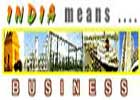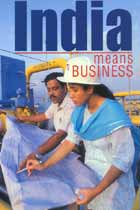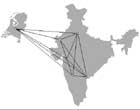India today is one of the most exciting emerging markets in the world. Skilled managerial and technical manpower that match the best available in the world and a middle class whose size exceeds the population of the USA or the European Union, provide India with a distinct cutting edge in global competition.
India is the largest democracy, the seventh largest and second most populous country in the world. India means business. A new spirit of economic freedom is now stirring in the country, which has introduced far-reaching changes in its wake. India has introduced a series of ambitious economic reforms aimed at deregulating the country and stimulating foreign investment. This has moved India firmly into the front ranks of the rapidly growing Asia Pacific region and freed the dormant strengths of a complex and rapidly changing nation. The economic reform introduced by the present government is firmly rooted in a political consensus that spans her diverse political parties. India's democracy is time tested and is a known and stable factor. Most important of all, India has no fundamental conflict between its political and economic systems. Its political institutions have fostered an open society with strong collective and individual rights and an environment supportive of free economic enterprise.
India offers foreign investors a transparent environment that guarantees the security of their long-term investments. These include a free and vibrant press, a judiciary which can and does overrule the government, a sophisticated legal and accounting system and a user friendly intellectual infrastructure.
This is supported by a dynamic and highly competitive private sector - the backbone of its economic activity. The private sector accounts for over 75% of its Gross Domestic Product and offers considerable scope for joint ventures and collaborations. Success and failure in business venture depends on factors like cultural differences, language barriers, business practices, legal, accounting and administrative issues etc. Before one gets involved with doing business or starts establishing trade links with India, it is better to get acquainted with the Indian society, culture and history, standards and values, the climate, the rules and regulations, the role of the central and the state governments, the trade unions, export and import possibilities, taxation, availability of qualified personal, infrastructure etc.
There is a difference between the Dutch and Indian market and understanding these factors can influence the business venture. In the Netherlands there are several institutions and organisations which can assist the businessman with information on and about India and can also play a role as a mediator. A few of the institutions and organisations you would find in this chapter.







